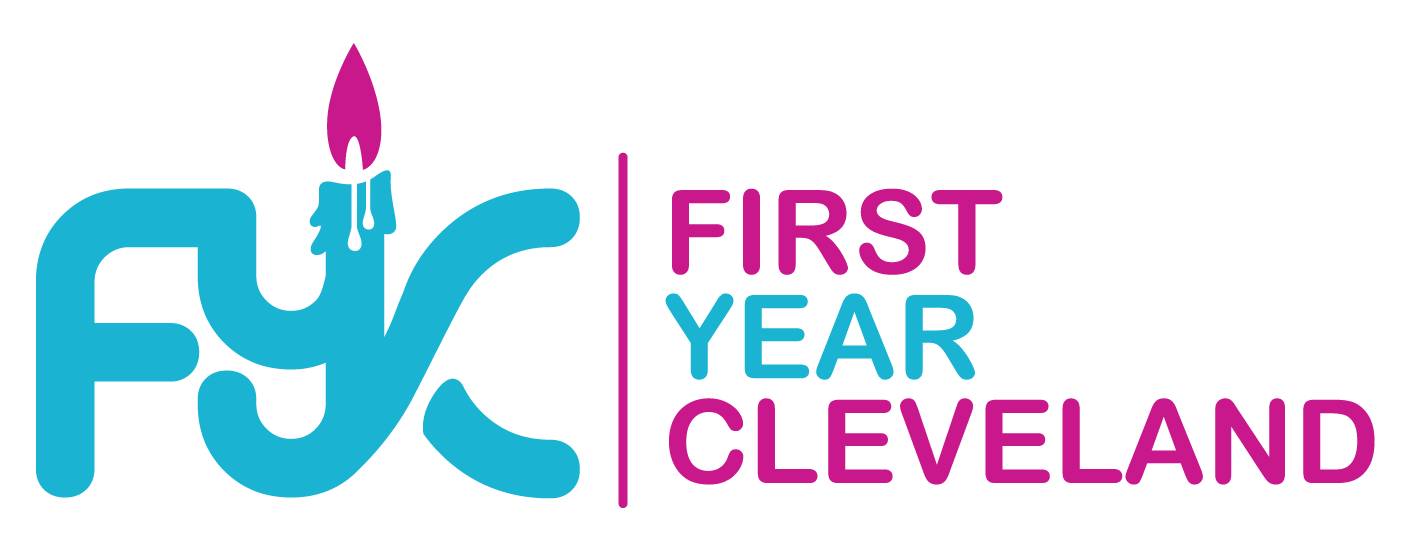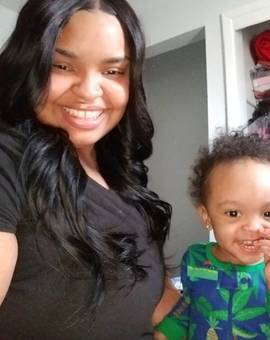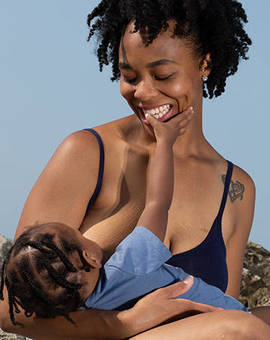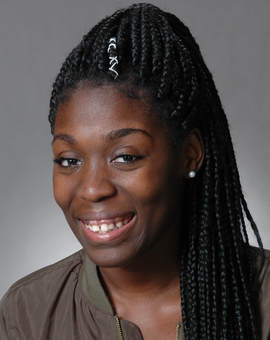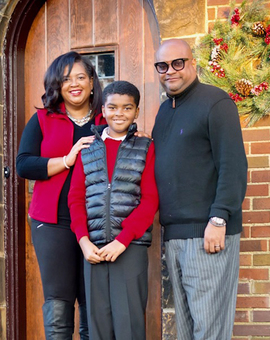
Yolanda L.
Yolanda L., co-owner of Lucas Funeral Home, has been sharing her story with other parents grieving the loss of their infants as part of the First Year Cleveland Pregnancy and Infant Loss group. Here, she details her 10-year journey to motherhood.
I’ve always wanted to become a mother. It was one of my dreams. I was always that number one babysitter in my teen years. When all my friends got married and had kids, my gift was always babysitting. I’d watch the kids if they needed to get away for a weekend or go to special events. I’ve just always loved children. I was married in 1995, and we started trying to get pregnant in 1997. My first pregnancy was in 1999, in the midst of my husband and I working hard to open our funeral home. We were so excited to become parents.
On January 22, 2000, we hosted our grand opening. It was one of the happiest and saddest days of my life because I had lost the baby just three days before, right near the end of my first trimester. I experienced so much pain and felt so alone, even though hundreds of people showed up to support us on the launch of the business. My husband was trying to be my support system, but he was hurting, also. I was smiling and rejoicing on the outside but crying on the inside. One dream was fulfilled and the other dream — motherhood — was not. At that time, I had no one to talk to about it. With a lot of my friends, it seemed like a lot of things came easy. They got pregnant and there were no complications. I was surrounded by people who had successful pregnancies.
I had a lot on my plate during this time. We had started a new business and I was taking care of my mother-in-law, multi-tasking on many levels. I felt like I had to keep it moving. Because if I didn’t keep it moving, I would fall apart. We kept trying to get pregnant and suffered more losses along the way. I suffered a lot in silence. I was depressed, but I smiled in public. I started developing all these strange symptoms where doctors couldn’t find a reason for the pain. But then one doctor told me, “All these symptoms are stress related.”
You internalize that pain and it ends up coming out one way or another. Finally, in 2006, I went to Houston and visited Lakewood Church. I waited in line after the service to meet Joel Osteen and his wife Victoria, and they prayed with me. He told me, “You need to activate your faith in a big way. You need to act like you’re already a mother.”
I went home and thought about what my baby needed. I bought an SUV, car seat and clothes. My husband thought I was going bonkers, but he stood in faith with me. At this time, I opened up and told people what I had been going through and asked them to pray for me. Later that year, someone recommended a doctor who handles very difficult fertility cases. He reviewed all my information and said, “I believe we can make this happen.”
My son Jason Harper L. II was born healthy in July 2007. I tell him all the time, “You are just such a blessing.” The baby journey was long, but it helped my character. I’m a lot more sensitive and want to help people through the process. It is a painful process, but you have to surrender to get through that pain. I want to give back now and let people know they’re not alone. I feel my purpose is to help others navigate through their grief and pain.
My Baby
By Yolanda L.
My Baby
Your smile when you awake
Warms my heart & day
Your little hands touch my face and
Your small arms wrap around my neck and shoulder
My heart melts with your embrace and I am so thankful for God’s Grace
To let me have you and be with you
Every day
You’re so beautiful
You look like a porcelain doll
Your life has brought me so much Joy
You’re truly a miracle
I am a blessed woman
To watch you grow and develop is amazing
Each day is something new that I cherish
It feels like a dream
The years of heartache, loss and grief
Are subsided…with a new beginning
All I see at this very moment.
IS
My precious living Baby and a grateful Mommy.
